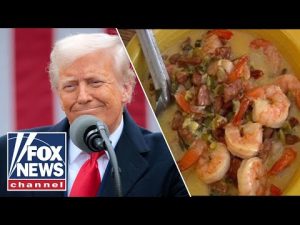In a world where political banter brings out the best quips and eyebrow-raising statements, one group captures the essence of confusion better than others: self-proclaimed tolerant individuals who just can’t tolerate dissent. The latest scene unfolds with a group of friends chatting about their election choices, a scene that quickly devolves into a comedic sketch of irony and head-scratching contradictions.
As the exchange kicks off, everyone shares who they voted for in the latest election. Cool and cordial, everyone seems to have accepted the varied choices—until one name pops up: Trump. All of a sudden, the air thickens as a friend declares an absolute intolerance for anyone who dared to vote for the former president. The environment vividly flips from calm politeness to a storm of declarations, showcasing a head-spinning example of what conservatives often poke fun at: selective tolerance.
This friend quickly throws around a laundry list of accusations, tagging Trump supporters with all the “phobias” they can muster. It’s a classic case of labeling without evidence, a technique that’d make any debater grimace. Yet, the most ironic twist is that the defender is considered free from these accusations simply due to their voting choice. In this topsy-turvy world, one’s principles or actions apparently don’t matter as much as the box they tick on a ballot.
As the conversation continues, a friend reveals they did, in fact, cast their vote for Trump. The once-friendly chatter transforms into a dramatic declaration of broken friendships. But wait! There’s a glimmer of sanity as another friend steps up, questioning the rashness of cutting ties based merely on voting lines. This sensible perspective highlights what the others seemed to overlook: isn’t the whole point of friendship its ability to transcend political divides?
With friendships teetering on the brink and contradictions hovering like pesky political gnats, this snapshot of conversation gives a striking look into why political discourse often stumbles. It beautifully encapsulates what many conservatives find amusing—how the echo chambers of certain social circles seem to preach tolerance with the fervor of intolerance. In the colorful tapestry of democracy, isn’t it more rewarding to weave threads of understanding rather than arbitrary divides?







